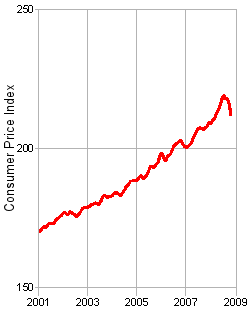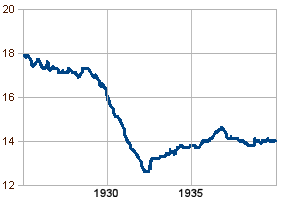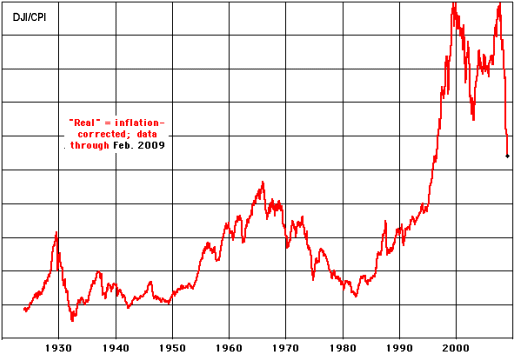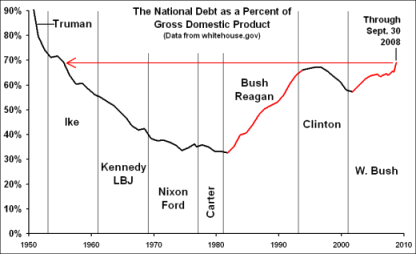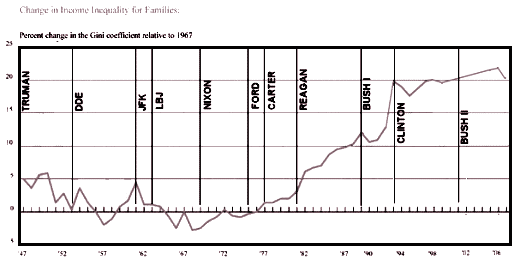Posted on Thursday 16 April 2009
Yesterday was Tax Day, and it was marked by large numbers of Americans turning out for an estimated 2,000 tea parties across the country. This movement is significant.
In 1978, California voters enacted Prop. 13 in reaction to steep property taxes. That marked the start of a tax-cutting movement that culminated in Ronald Reagan slashing high national income taxes in the 1980s. Now Americans are reacting to runaway government spending that they were not told about before last year’s election, and which Americans are growing to resent. Derided by elitists as phony, the tea-party movement is spontaneous, decentralized, frequently amateurish and sometimes shrill. If it has a father it is CNBC’s Rick Santelli, who called for holding a tea party in Chicago on July 4. Yesterday’s gatherings were made up of people who may never meet again (there’s no central collection point for email addresses). But the concerns driving people to tea parties are real, growing and powerful. Politicians ignore them at their peril. One concern is the rise of state and local taxes. New York and California passed multibillion-dollar tax increases this year. Other states are considering significant tax hikes or have enacted tax increases in recent years. The many tax and fee increases enacted or under consideration is angering voters.
If that anger persists, it may give Republicans a leg up in the 38 gubernatorial elections over the next two years, as well as in key state legislative races that will determine which party redraws congressional and state legislative districts after the 2010 census. Expect voters to hear a lot about jobs being created in low-tax states in the coming years. But the center of the debate is in Washington, not the states. The fear of future federal tax hikes is fueling the tea-party movement. This is an important development. In 2008, voters were less worried about taxes than they had been in previous elections. Why? Because the 15 years between President Bill Clinton’s 1993 tax hike and Barack Obama’s increase in cigarette taxes in February was the longest stretch in U.S. history without a federal tax increase. President George W. Bush’s tax cuts also cut 13 million people on the lower-end of the income scale from the income tax rolls — people who don’t pay taxes aren’t worried about the tax burden. So far, Mr. Obama has decided to let the Bush tax cuts expire in 2011 and avoid forcing Democrats to take a tough vote. But the tea parties reveal how hard it will be for the president to hide the Democrats’ tax-and-spend tendencies from voters.
Mr. Obama plans to boost federal spending 25% while nearly tripling the national debt over 10 years. Americans know that this kind of spending will have economic consequences, including new taxes being imposed by the new progressives. It hasn’t gotten a ton of attention, but people are fed up with the complexity of their tax code and ready to do something about it. The Tax Foundation’s 2009 Annual Tax Attitudes (which was conducted Feb. 18-27, by Harris) shows us that many Americans are willing to trade popular deductions for lower rates and a simpler code. There’s also been a flurry of interest among Americans in replacing the current system with a national sales tax or a flat tax. The open question is whether Republicans will be boosted by the nascent tea-party movement. House Republicans smartly offered a proposed spending plan this year that would freeze nondefense discretionary spending, suspend earmarks for five years, and reform entitlements. But cutting spending won’t be enough. Taxes matter — and will matter more in the coming years.
The 2009 Tax Foundation survey found that Americans believe that taxes should, on average, take just 15.6% of a person’s wages. And 88% of Americans in the same poll believe that there should be a cap on all federal, state, and local taxes of 29% or less — there is still a constituency out there that will favor tax cutting politicians. But to tap into that constituency Republicans will have to link lower taxes to money in voters’ pockets, and economic growth and jobs. They must explain why the GOP approach will lead to greater prosperity. Such arguments are not self-executing. They require leaders to make them, time and again, as Reagan once did. Some liberals believe that the recession has made tax-and-spend issues passé. But political movements are often a reaction against aggressive overreach by those in power. Mr. Obama’s response to the financial crisis — a government power grab and budget explosion — has put spending and taxes back on the front burner. The tea parties are an early manifestation of that. More is sure to follow.
But that’s not the central piece in Mr. Rove’s offering. It’s about power – always about power. So he’s going back to his roots and saying it’s time to give it another shot: "... there is still a constituency out there that will favor tax cutting politicians. But to tap into that constituency Republicans will have to link lower taxes to money in voters’ pockets, and economic growth and jobs. They must explain why the GOP approach will lead to greater prosperity. Such arguments are not self-executing. They require leaders to make them, time and again, as Reagan once did. Some liberals believe that the recession has made tax-and-spend issues passé."




 What follows this introduction is a long narrative justifying each of these techniques as being something other than torture. While the absurdity of the logic is the most striking feature at first glance, it’s the detachment of the authors that becomes increasingly monstrous. It really does sound like some of the lingo in the German descriptions of their extermination camps, as if they’re talking about something other than human beings – things like "… the head and neck are supported with a rolled hood or towel that provides a c-collar effect to help prevent whiplash," as if whiplash is the problem. It’s hard to imagine that the White House got involved with such things [such pointless things].
What follows this introduction is a long narrative justifying each of these techniques as being something other than torture. While the absurdity of the logic is the most striking feature at first glance, it’s the detachment of the authors that becomes increasingly monstrous. It really does sound like some of the lingo in the German descriptions of their extermination camps, as if they’re talking about something other than human beings – things like "… the head and neck are supported with a rolled hood or towel that provides a c-collar effect to help prevent whiplash," as if whiplash is the problem. It’s hard to imagine that the White House got involved with such things [such pointless things]. A three-judge panel in Minnesota has declared Al Franken the winner of the contested US Senate race there. Norm Coleman is expected to appeal. (Photo: AP) Three judges soundly rejected Norm Coleman’s attempt to reverse Al Franken’s lead in the U.S. Senate election late Monday, sweeping away the Republican’s claims in a blunt ruling Coleman promised to appeal. After a trial spanning nearly three months, the judicial panel dismissed Coleman’s central argument that the election and its aftermath were fraught with systemic errors that made the results invalid.
A three-judge panel in Minnesota has declared Al Franken the winner of the contested US Senate race there. Norm Coleman is expected to appeal. (Photo: AP) Three judges soundly rejected Norm Coleman’s attempt to reverse Al Franken’s lead in the U.S. Senate election late Monday, sweeping away the Republican’s claims in a blunt ruling Coleman promised to appeal. After a trial spanning nearly three months, the judicial panel dismissed Coleman’s central argument that the election and its aftermath were fraught with systemic errors that made the results invalid.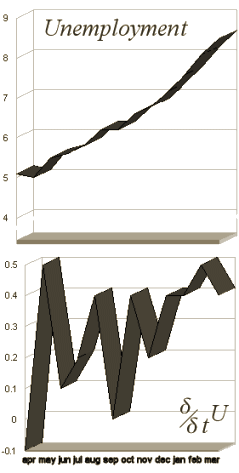
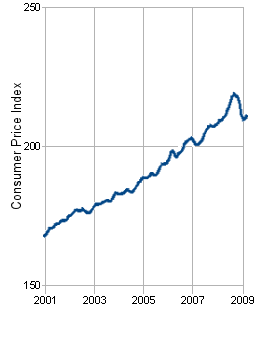
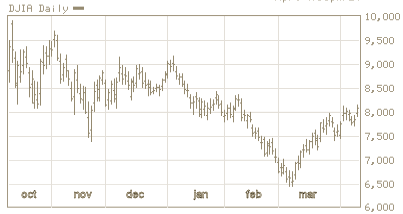

 Doug Feith, former Undersecretary of Defense for Policy, is best known for cooking up bogus prewar Iraq intelligence linking Iraq and al-Qaeda and 9/11. But in addition to his duties stove piping phony intelligence directly to former Vice President Dick Cheney, Feith was also a key member of a small working group of Defense Department officials who oversaw the implementation of "enhanced interrogation techniques" at Guantanamo Bay that has been widely regarded as torture. Last weekend, Spain’s investigating magistrate Baltasar Garzon, who issued an arrest warrant for former Chilean dictator Augusto Pinochet in 1998, ordered prosecutors to investigate Feith and five other senior Bush administration officials for sanctioning torture at the prison facility.
Doug Feith, former Undersecretary of Defense for Policy, is best known for cooking up bogus prewar Iraq intelligence linking Iraq and al-Qaeda and 9/11. But in addition to his duties stove piping phony intelligence directly to former Vice President Dick Cheney, Feith was also a key member of a small working group of Defense Department officials who oversaw the implementation of "enhanced interrogation techniques" at Guantanamo Bay that has been widely regarded as torture. Last weekend, Spain’s investigating magistrate Baltasar Garzon, who issued an arrest warrant for former Chilean dictator Augusto Pinochet in 1998, ordered prosecutors to investigate Feith and five other senior Bush administration officials for sanctioning torture at the prison facility.